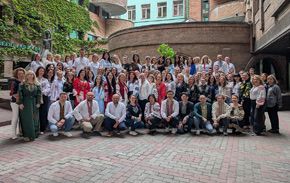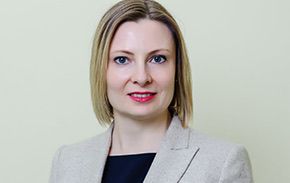MC.today July 2020
Crisis and quarantine effected the whole Ukrainian economy, including banks. Part of their clients can’t repay the loans in time, and banks issue less loans than before due to high risks.
Despite decrease in income, Credit Agricole Bank does not reduce headcount, keeps lending to business and simplified the life of its customers as much as possible. In the partnership project, Deputy CEO Galina Zhukova told to MC.today, what allows the banks to earn, what has changed for Credit Agricole and its customers due to the crisis and how the bank managed to meet all obligations to clients and employees.
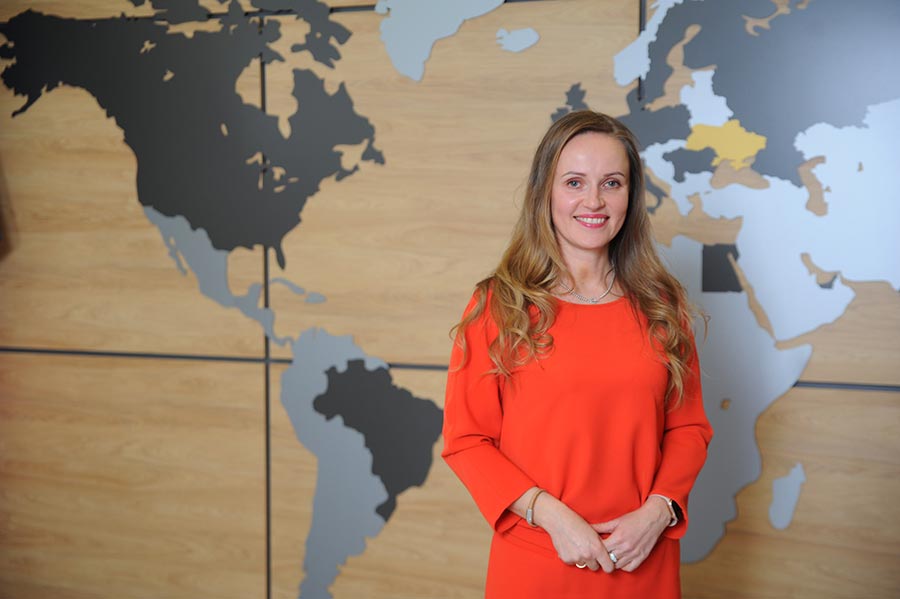
How banks earn
To put it simply, banks have two main types of income: interest and commission.
Interest income is earned on liabilities and assets. Liabilities are deposits and current account balances of private clients and companies, businesses. The bank uses these funds to issue loans and for more complex financial instruments – these are assets. And it gets profit that depends on the difference between the level of loans’ (assets) and deposits’ (liabilities) rates ― the so-called margin.
Besides assets and liabilities, the bank performs many other services for which it gets a commission. These are payment for card accounts servicing, money transfers, currency exchange, payments, transactions, various banking tools for corporate customers. This is commission income.
It is safer for the bank when these two types of income are balanced. In crisis times clients take less loans or the bank issues less of them – the share of interest income may reduce. Therefore, the banks with substantial share of commission income are more stable in crisis.
What helps the bank stay stable in crisis
In our language, stability means resilience of the bank. The bank is resilient if it is profitable, present in the market for a long time, gradually grows, increases the number of clients, loan portfolio, performs all obligations, can issue loans and handle other transactions. It means that it successfully resists to external and internal factors that may affect its financial stability.
External factors include investment climate, currency rate, inflation rate, requirements of the National Bank, etc. For example, premise rent prices are linked to inflation and when it hikes, expenses of the bank grow substantially.
Internal factors include business model of the bank, level of professionalism of top- management, and financial indicators (profitability, amounts of loan and deposit portfolios, liquidity, etc.).
It is impossible to say which indicator is the most important, resilience of the bank depends on each of them. For example, liquidity is the ability of the bank to meet its obligations at any point of time. This requires that there are slightly more deposits than loans. If liquidity is low, one can find itself in a difficult situation. You have to pay UAH 50 million to the customer but there is no free money – it was disbursed as a loan. But if the liquidity is too high, if there are much more deposits than loans, it is bad as well. It means that you get less profit than you could.
All these factors determine whether the bank can survive the crisis. International banks are more resilient in such periods. They have not only to perform the requirements of the NBU but also of the parent group that works according to the requirements of the European Central Bank.
For example, each month all banks make mandatory provisions – “untouchable” amount of money that should be kept to survive the crisis.
When we increase provisions – safety airbag – we automatically reduce our profit. Nevertheless, we are confident in our capability and meet all obligations before our customers.
Now we pay even more attention to provisions. We try to secure ourselves and the clients, analyze long-term forecasts and make more provisions. For example, over two months of the crisis – from 1 March to 1 May – we increased our safety airbag by UAH 200 million. This is 11% more to the amount as at 1 March 2020.
What has changed when the crisis
The situation of all banks deteriorated due to the crisis. Income decreased, expenses, the other way around, increased due to security measures and reorganization of work.
In Credit Agricole, account balances remained at the same level and even increased a bit because people spent less. Over the first quarter our deposit portfolio increased by 25% against the beginning of the year. It turns out that liabilities of the bank grow but we receive much less commission income from private individuals.
The situation with loans is different. In crisis times, people are reluctant to take loans and we are more selective. If a person works in travel industry, we will not take the risk. Of course, the decision is made individually in each case. But, even with decreased demand we issued car loans in the amount of UAH 1 billion over 5 months. This result is not worse than last year.
The situation is stable with corporate clients. Companies, except really small ones, continue their business activity: pay under contracts, get money from partners, open new accounts, credit salaries, etc. And we receive commission income.
We finance business at the usual level. For example, in March-April, when agribusiness had sowing campaign, we actively issued agro loans. We provided UAH 930 million of loans to middle corporate business and SME over those two months. Overall, in the first quarter net loan portfolio of the bank increased by 6% comparing to the 1Q 2019.
In the first quarter of this year, net profit of the bank amounted to UAH 386 million that is by 12% less than for the same period of 2019.
What we did at first signs of the crisis
When we saw the first signs of the crisis, Board Members had a meeting and developed three scenarios: best case, base case, and worst case. In such cases we always build on base case scenario but there should also be plan B.
We estimated how much income we will lose, how much provisions we need to make, which projects should be postponed. On this basis we developed an action plan.
We do not segregate clients’ interests from the bank’s interests. We understand that we will have temporary shortage in income but we will keep clients and their confidence.
On the one hand, this is social responsibility, on the other hand, this is - our long-term strategy and investment into future. Our manifesto in this period is “You can rely on Credit Agricole!”
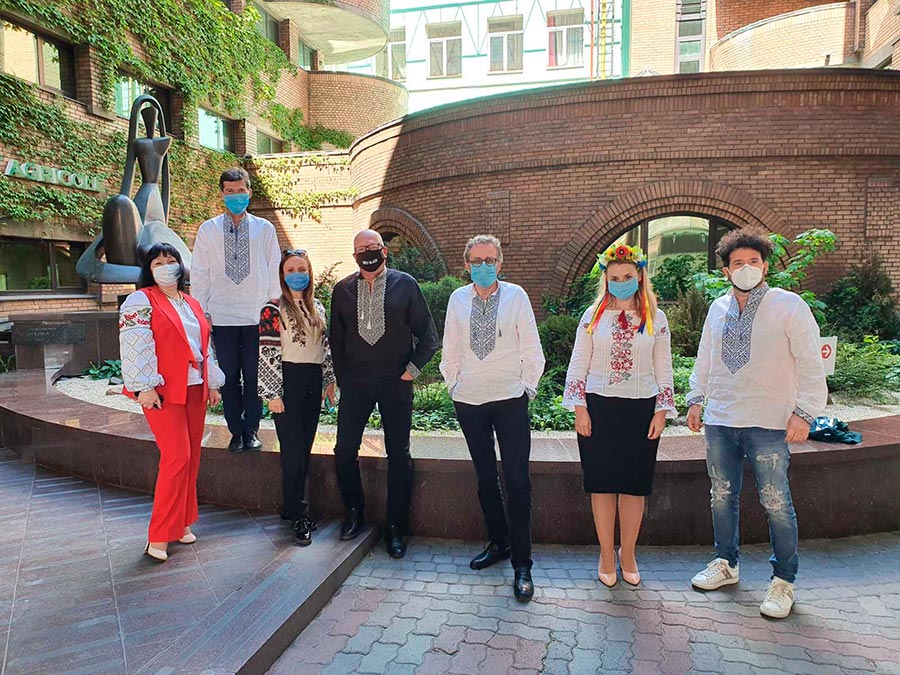
What we did for the staff
Despite the crisis, we did not fire anyone and did not impose unpaid vacations. We pay full salaries and even bonuses and provide health insurance and life insurance.
On top of keeping jobs, we had to ensure safe working conditions for people.
For the period of strict confinement, it was decided to temporarily close 17 branches out of 150. The teams of working branches were divided into two groups: one served customers while the other stayed at home. The teams changed each other every two weeks. Masks for employees and sanitizers were purchased for all branches.
By mid-May, 85% of Head Office staff worked remotely, including almost the entire call-center. We promptly purchased 550 laptops and our IT division installed the required programs and accesses during two weeks almost 24/7.
For all quarantine-related measures we spent about UAH 22.2 million: 18 mio for laptops for the team and about 4.2 mio – for masks, gloves, sanitizers and other means of protection.
After the quarantine softening in May, all branches of the bank work again, part of Head Office employees gradually return to the normal working mode though they still can work remotely. We want to keep this option after the quarantine as well.
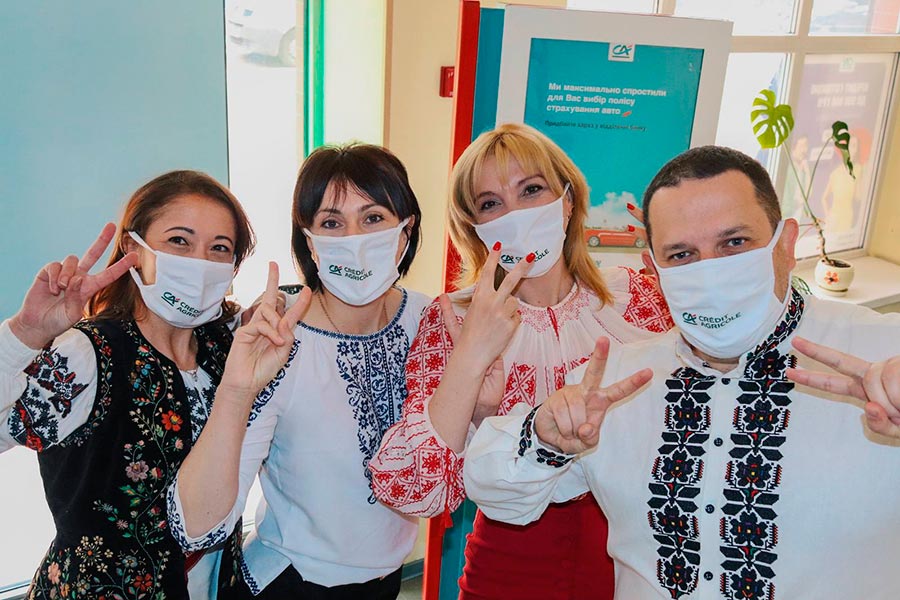
What we did for customers
We took care about our clients as well. We gave the opportunity to receive most of services remotely. Some customers were offered to use “credit holidays”: to defer payments without penalties and with automatic extension of credit limits. This can be done remotely. A bit more than 5% of private individuals of those with credit products used credit holidays over the first two months.
We extended expiring of payment cards by 90 days automatically. This released clients from visiting branches.
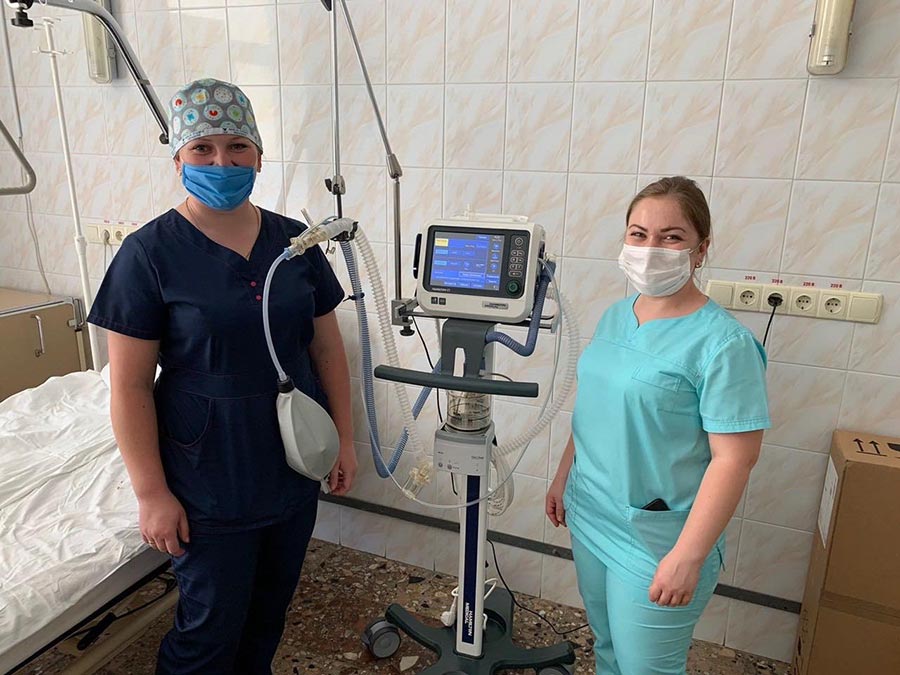
What we did for society
Our goal is not an instant profit: to earn money and go on vacation. We are here to grow together with the clients and take part in the life of the country. Part of our social responsibility are charity projects.
For now, we focused maximum efforts and resources to help Ukraine counteract COVID-19. In late May, Credit Agricole Bank allocated the third donation – UAH 5 million – for complex equipment of the intensive care unit of Chernivtsi hospital. This is the largest charity project over the entire history of the bank in Ukraine. All in all, since the beginning of the year, we contributed UAH 6.3 million for the aid to hospitals as part of «We Care!» program. Additionally, we support orphanages and environmental initiatives.
What we will do after the quarantine
Due to the epidemic, we had to postpone or revise some plans, for example, sales network transformation project. We want to redesign branches: make them more comfortable, organize client flow differently. The employee will not be linked to a specific desk, they can take a laptop, sit with the customer on the sofa and resolve all issues. For this purpose, we change the design of branches and purchase various equipment.
Before the crisis, we planned to transform 20 branches in 2020. However, since each branch transformation would require several million hryvnias, we decided to transform only 10 this year.
We also want to revise the approach to the remote work. I shall admit, I was against remote work but realized that such work can be organized effectively. After the confinement, we will allow Head Office employees to work from home one or two days per week.
During the quarantine we began to pay more attention to development of mobile application for customers, it is already presented to customers. In the starting version, all key services are available. We will add new functionalities step by step.
We will also continue working on the new CRM system (software to manage relations with clients – editorial note). It is being developed for the entire Credit Agricole Group but each country customizes it. We decided not to postpone this project as the system will help increase customer loyalty. For example, we will be able to contact them with personalized proposals.
We keep investing in digital technologies. As the recent events showed, such expenses are always returned and make the lives of both customers and employees easier.
I think, that our team worked very well together, and we managed to prove that our customers, employees and society can rely on our bank. We believe that in such situations we have to show good example to others and always remain socially responsible.
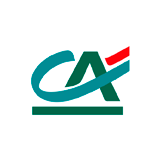
 Useful information
Useful information
 Useful information
Useful information
 Useful information
Useful information
 Useful information
Useful information
 Useful information
Useful information
 Useful information
Useful information
 Useful information
Useful information
 Useful information
Useful information
 Useful information
Useful information
 Useful information
Useful information
 Useful information
Useful information
 Useful information
Useful information
 Useful information
Useful information
 Useful information
Useful information
 Useful information
Useful information






